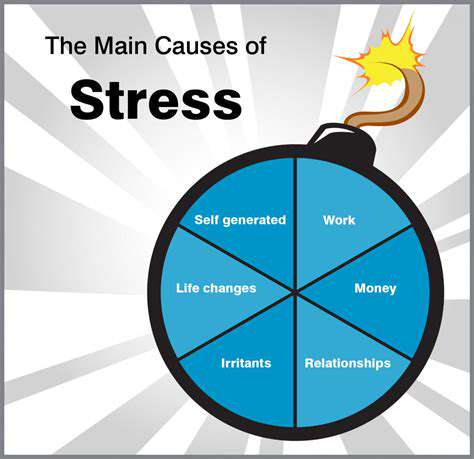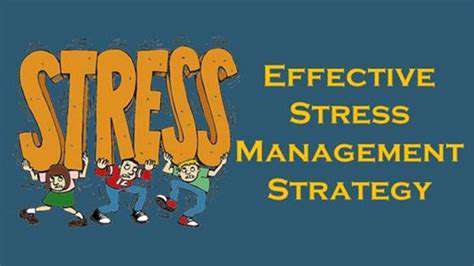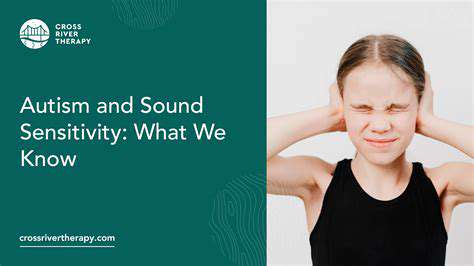Managing Everyday Tension and Stress in a Fast Paced World
The Causes of Stress in Today’s Society

Modern Lifestyle Factors Contributing to Stress
In today’s fast-paced world, the modern lifestyle is filled with numerous stressors that can lead to significant mental strain. Our hectic schedules—filled with work obligations, family responsibilities, and social commitments—leave little room for relaxation. Many people find themselves juggling multiple tasks at once, which can lead to feelings of being overwhelmed and anxious. Additionally, the pressure to maintain an unrealistic pace often fosters a work-life imbalance, where personal time becomes compromised.
Technology plays a pivotal role in both facilitating and exacerbating stress. While it connects us with loved ones and allows for remote work, it also blurs the boundaries between work and personal life. People are increasingly expected to be available around the clock, which can disrupt their downtime. This constant connectivity can prevent individuals from disengaging from work and thus amplify their stress levels. The inundation of notifications on mobile devices further contributes to a sense of urgency and heightened anxiety.
Moreover, the consumer culture prevalent in society today can create feelings of inadequacy and the constant pursuit of material success. Social media platforms magnify these effects by portraying idealized lifestyles that are often unattainable. Individuals frequently find themselves comparing their lives to curated images of others, fueling a cycle of dissatisfaction and stress. This environment discourages self-acceptance and promotes a relentless desire for more, which can be exhausting.
Environmental factors such as urban living also add to the stress equation. The hustle and bustle of city life, characterized by noise, crowding, and pollution, can lead to sensory overload. Such elements not only affect one’s mood but can also result in chronic stress if one does not find moments to escape the chaos. Nature exposure has been shown to reduce stress, yet urbanization often limits access to green spaces, making it challenging to find refuge.
In summary, the fusion of a demanding lifestyle, technological expectations, consumer pressures, and urban environments creates a potent mix of stressors. Understanding these factors is essential for individuals aiming to manage their stress effectively. By recognizing the underlying causes, people can take proactive steps toward creating a balanced and fulfilling life.
Psychological Impacts of Stress in a Fast-Paced Society
The psychological impacts of stress are profound and can manifest in various ways, affecting both mental health and well-being. Increased stress levels often lead to anxiety disorders, which can disrupt daily functioning. Individuals may find themselves constantly on edge, facing difficulty in concentrating or making decisions. This persistent anxiety can be debilitating, affecting one's ability to maintain personal and professional relationships. Consequently, individuals may withdraw socially, compounding feelings of isolation and loneliness.
Chronic stress can also lead to depression, characterized by a persistent low mood and loss of interest in activities once enjoyed. The interplay between stressors can create a vicious cycle where the inability to cope with stress exacerbates depressive symptoms. People may feel trapped, unsure of how to effectively break free from this cycle, leading to a sense of hopelessness and despair. Recognizing these symptoms is critical in seeking timely help and intervention.
Additionally, the stress experienced in a fast-paced society can contribute to a decreased sense of self-worth. Individuals may engage in negative self-talk, believing they are incapable or simply not good enough. This perception can result in avoidance of challenges or new opportunities, limiting personal growth. Recognizing and reframing these negative thoughts is vital for individuals striving to cultivate a positive self-image.
Furthermore, the impacts of stress affect not only mental health but also physical health. Prolonged exposure to stress has been linked to various health issues, such as cardiovascular disease and weakened immune function. The body’s stress response, if activated too frequently, can lead to inflammation and other systemic problems. It is crucial for individuals to prioritize stress management to protect their long-term health and quality of life.
In conclusion, the psychological impacts of stress in today’s society are significant, underscoring the need for effective coping strategies and support systems. Managing stress is not merely about alleviating discomfort; it is about fostering overall well-being and resilience in an increasingly demanding world. By advocating for mental health awareness and creating supportive environments, we can work towards lessening the burden of stress on individuals.
Recognizing the Signs of Stress
Understanding Stress Response
Stress is a natural response, deeply ingrained in human physiology. When faced with a challenge, the body releases stress hormones like adrenaline and cortisol, preparing us for 'fight or flight.' While this response can be beneficial in short bursts, chronic activation can lead to significant health problems. Understanding how this response manifests physically and mentally can empower individuals to manage stress more effectively.
Common physical signs of stress include tension headaches, muscle tightness, and fatigue. These symptoms often stem from prolonged periods of heightened alertness and can indicate that your body is under strain. Being aware of these signs can prompt individuals to take preventive measures before stress escalates to a chronic condition.
Mental signs of stress can be just as telling. Increased irritability, feelings of overwhelm, and difficulty concentrating are often markers that stress is affecting your cognitive functioning. Recognizing these mental shifts enables individuals to take mindful steps to address their stressors, whether through relaxation techniques, physical activity, or seeking support.
In summary, both physical and mental indicators of stress are crucial components of our overall well-being. By cultivating an awareness of these signs, we can develop proactive strategies to manage stress effectively within our fast-paced lives.
The Psychological Impact of Stress
Psychological stress can significantly affect one's mental health, leading to a variety of emotional disturbances. Anxiety, depression, and chronic fatigue often stem from prolonged exposure to stressors. Understanding this psychological impact is vital as it highlights the importance of addressing stress before it spirals out of control.
Feelings of helplessness and a loss of control are common emotional responses to stress. Individuals may feel trapped in their circumstances, leading to a sense of despair and withdrawal from social interactions. Such feelings can significantly impede one's ability to engage in daily life, illustrating the need for recognition and intervention.
Moreover, stress can impair decision-making abilities and cognitive functions. It can create a cloud of distraction, making it hard to focus on tasks or make sound judgments. This can lead to a vicious cycle where poor decision-making creates further stress, perpetuating the emotional suffering.
Understanding the psychological dimensions of stress emphasizes the need for self-compassion and proactive coping strategies. Engaging in regular self-care practices such as mindfulness, therapy, or supportive relationships can serve as antidotes to the debilitating effects of stress and promote a healthier mindset.
Physical Symptoms and Their Effects
Stress affects not only our minds but also exhibits myriad physical symptoms that can impact overall health. For instance, chronic stress has been linked to cardiovascular diseases, weight gain, and digestive issues, all of which arise from prolonged hormone fluctuations in response to stress. Recognizing these symptoms early can prevent succumbing to more severe health conditions.
One of the most common physical manifestations of stress is muscle tension, particularly in the neck and shoulders. Over time, this tension can lead to chronic pain and discomfort, making it difficult to concentrate and remain productive. Regular physical activity can alleviate some of this tension, promoting overall well-being.
Stress can also disrupt sleep patterns, contributing to insomnia or excessive fatigue. Poor sleep exacerbates stress, creating a cycle that can seem insurmountable. Prioritizing good sleep hygiene, such as establishing a consistent bedtime routine, can mitigate this symptom and enhance resilience against stressors.
Lastly, the immune system often takes a hit during periods of high stress, increasing susceptibility to illness. Recognizing that stress can compromise immune function underscores the importance of stress management in maintaining overall health. Implementing relaxation techniques can foster a better immune response and bolster physical health.
Identifying Personal Stress Triggers
Understanding one's unique stress triggers is crucial for effective stress management. Stressors can range from work-related pressures to personal life complexities, and recognizing these triggers can help individuals adopt targeted coping strategies. Keeping a stress diary can facilitate this process by tracking when and where stress arises, leading to greater insight.
Moreover, social interactions can often act as stress triggers. Conflict with family members or friends, or even feelings of social inadequacy, can elevate stress levels. By identifying and addressing harmful patterns in relationships, individuals can foster healthier communication styles, which may lessen overall anxiety.
Work-related triggers, such as high workloads or lack of support, deserve special attention. Identifying the specific aspects of work that induce stress can empower individuals to make changes when possible. Whether it's renegotiating deadlines or seeking help from colleagues, proactive steps can mitigate workplace stress.
Ultimately, recognizing and addressing personal stress triggers is paramount. This process enables people to reclaim their sense of control in a fast-paced world, paving the way for healthier, more balanced lives. Self-reflection and awareness can significantly contribute to managing and alleviating stress over time.
Developing Healthy Coping Mechanisms
Adopting healthy coping mechanisms is essential for managing stress in any setting. Techniques such as mindfulness and meditation have gained significant attention for their ability to cultivate peace and clarity in the midst of chaos. Engaging in even a few minutes of mindfulness daily can dramatically influence emotional well-being and promote relaxation.
Physical exercise is another powerful coping strategy not only for stress relief but also for overall health. Regular physical activity, whether through structured workouts or recreational activities, releases endorphins that enhance mood and alleviate tension. Exploring various forms of exercise can help find what resonates best with an individual's preferences.
Creative pursuits like journaling, painting, or playing music can serve as effective outlets for stress relief. These activities foster self-expression and allow one to process feelings in a constructive manner. Emphasizing creativity may inspire joy and serve as an additional buffer against everyday stressors.
Lastly, the importance of social connections cannot be overstated. Building a supportive network of friends and family can provide comfort during challenging times. Opening up in conversations about stress triggers can strengthen relationships and create spaces for collective problem-solving, ultimately reinforcing resilience in today's fast-paced environment.
Effective Strategies for Stress Management

Understanding the Sources of Stress
Identifying the sources of stress in your life is the first crucial step toward successful management. Many individuals often overlook the underlying factors that contribute to their stress. Whether it's work-related pressure, personal relationships, or financial challenges, recognizing these stressors is vital.
Stress can arise from various dimensions such as emotional, physical, and environmental. For instance, fight-or-flight responses triggered by deadlines or familial obligations can escalate tension significantly. Developing a clear awareness of what triggers your stress can empower you to take proactive measures.
A comprehensive analysis of your daily routine can help unveil hidden stressors. Keeping a stress journal, for example, can help you track patterns and identify which situations tend to generate the most stress. This exercise can provide insights that foster better coping strategies.
Additionally, understanding the difference between external and internal stressors is essential. External triggers such as an overwhelming workload can be managed by prioritizing tasks, while internal stressors may require emotional processing techniques. This differentiation facilitates a more tailored approach to stress management.
Mindfulness and Relaxation Techniques
Mindfulness practices have gained popularity as effective tools for managing stress in our fast-paced lives. Techniques such as meditation, deep breathing, and yoga can help ground individuals amidst chaos. Through these practices, one can develop greater emotional resilience and clarity.
Engaging in mindfulness promotes self-awareness, allowing you to observe your thoughts and feelings without judgment. This fosters a more balanced perspective, reducing the overall impact of stressors on your mental state. Regular practice can also shift your focus from everyday pressures to the present moment.
Deep breathing exercises are particularly beneficial for immediate stress relief. By engaging in diaphragmatic breathing, you can activate your body's relaxation response, leading to lower heart rates and enhanced feelings of calmness. Many individuals find these techniques effective, especially during moments of acute stress.
Incorporating relaxation techniques, such as progressive muscle relaxation, can also mitigate physical tension. Systematically tensing and then releasing muscle groups allows you to recognize where you hold stress in your body. This awareness can lead to both physical and emotional relaxation.
Building a Support Network
A strong support network is essential in managing stress effectively. Sharing your feelings and concerns with trusted friends or family members can foster a sense of connection and understanding. Personal connections often provide comfort and validation, contributing to emotional stability.
Participating in group activities or support groups can also enhance your coping strategies. These settings allow you to exchange experiences and learn from one another. Knowing that others face similar challenges can be incredibly reassuring and can encourage the development of resilience.
Moreover, building a community of support can lead to practical assistance during challenging times. Whether it’s brainstorming solutions or simply having someone to listen, a solid network can alleviate the burden of stress. Don’t hesitate to reach out; meaningful connections can provide crucial relief.
Lastly, actively nurturing your relationships can ensure that your support network remains vibrant and effective. Scheduling regular catch-ups with friends or participating in group activities can strengthen these bonds over time. A well-maintained network can offer a lifeline during life’s unavoidable stressors.
Incorporating Healthy Lifestyle Choices
Establishing a healthy lifestyle is vital for long-term stress management. Nutrition, exercise, and sleep play a pivotal role in how your body responds to stress. Maintaining a balanced diet filled with nutrient-rich foods can improve your overall mood and energy levels.
Regular physical activity is one of the most effective tools for stress reduction. Exercise releases endorphins, which contribute to feelings of joy and decreased stress. Setting realistic fitness goals can enhance your physical health while providing an excellent outlet for anxiety.
Furthermore, adequate sleep is essential for emotional regulation and resilience. Lack of sleep can exacerbate stress and lead to health problems, creating a vicious cycle. Prioritizing restful activities and establishing a consistent sleep routine can greatly enhance your ability to cope with stressors.
Lastly, minimizing unhealthy habits, such as excessive caffeine or alcohol consumption, can create a more stable environment for emotional health. These substances can amplify feelings of anxiety and disrupt sleep patterns. By focusing on healthy lifestyle choices, you can fortify your resilience against daily stress.
Building Resilience Against Stress
Understanding the Roots of Stress
Stress is often rooted in various sources ranging from personal to environmental factors. Understanding these origins is crucial for developing effective coping mechanisms. For instance, workplace pressure can stem from unrealistic deadlines, lack of support, or even office politics. When individuals recognize these triggers, they can start addressing their stress in a more informed way.
Additionally, personal relationships can be significant stressors, especially when communication falters or expectations clash. It's important to acknowledge these dynamics, as they can lead to feelings of isolation. Addressing interpersonal issues proactively can serve as a foundation for reducing their impact on overall well-being.
Moreover, societal expectations, such as achieving success and maintaining a perfect lifestyle, can create a persistent sense of inadequacy. When individuals are constantly bombarded with idealized standards through social media, the pressure to conform can exacerbate stress levels. Acknowledging this societal influence helps in fostering an authentic self-view, promoting resilience.
Finally, health-related issues, whether physical or mental, can significantly contribute to stress. Chronic illnesses or the fear of illness can create a cycle of anxiety. Managing these factors requires a holistic approach, encompassing medical support, healthy habits, and emotional resilience to empower individuals in their journey towards stress management.
Strategies for Developing Resilience
Building resilience is a proactive approach towards managing stress more effectively over time. One effective strategy is the practice of mindfulness, which encourages individuals to stay present and fully engage with their current experience. Mindfulness can significantly diminish anxiety by redirecting focus away from worries about the future and regret about the past, allowing for a calmer state of mind.
Another vital strategy is cultivating a strong support network. Social connections play a crucial role in resilience, providing emotional support during tough times. Engaging with friends, family, or support groups fosters a sense of belonging, which can mitigate feelings of loneliness and helplessness, ultimately improving one's ability to cope with stressors.
Physical health cannot be overlooked in the pursuit of resilience. Regular exercise, a balanced diet, and adequate sleep are foundational elements that contribute to overall well-being. Exercise, in particular, has been shown to release endorphins, which act as natural stress relievers. Prioritizing self-care is essential for strengthening one’s mental and emotional fortitude.
Finally, fostering a growth mindset can be transformative in building resilience. This involves viewing challenges as opportunities for personal and professional development rather than insurmountable obstacles. Embracing change and uncertainty, and recognizing the power of adaptability can empower individuals to navigate life’s stresses with greater grace and confidence.



